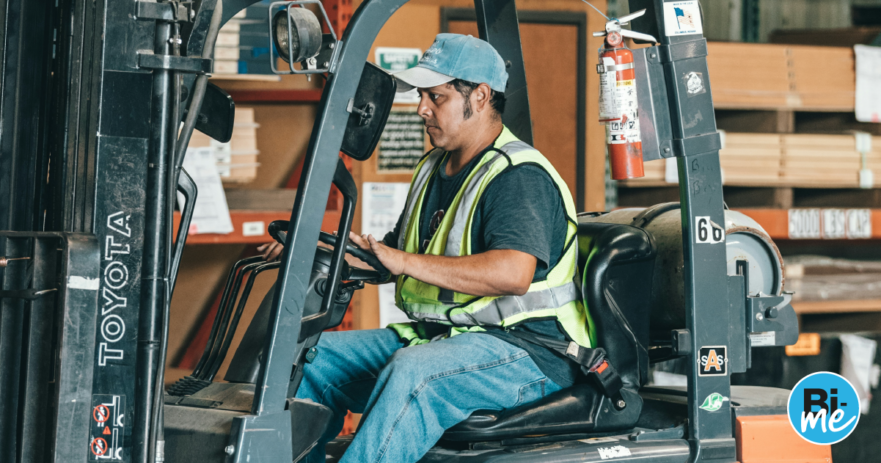In the vast and intricate world of construction, securing the right insurance is as crucial as laying a solid foundation. Choosing Contractors All Risk Insurance stands as a linchpin in this endeavour, offering protection against a myriad of risks inherent to construction projects.
However, not all insurers are created equal. This guide explores the essential factors to consider when choosing a Contractors All Risk Insurance provider, ensuring that the safety net you choose aligns seamlessly with your project’s unique needs.
Understanding the Significance of Contractors All Risk (CAR) Insurance
Before delving into the criteria for selecting an insurer, it’s imperative to understand the significance of Contractors All Risk Insurance.
CAR Insurance provides a comprehensive coverage umbrella, encompassing damages to the construction project, third-party liabilities, and various unforeseen events.
And it serves as a financial safeguard, offering peace of mind to contractors and project owners alike.
7 Key Considerations When Choosing a CAR Insurance Provider
Selecting a CAR Insurance provider is a strategic decision that goes beyond financial protection. Consider the insurer’s financial stability, industry expertise, and the efficiency of their claims process. Scrutinise policy coverage, ensuring transparency in inclusions and exclusions.
Also seek a provider with a positive reputation and flexibility in coverage options, aligning with the diverse needs of your construction projects.
Ultimately, choosing Contractors All Risk Insurance becomes a strategic ally, understanding and navigating the unique risks inherent in construction endeavours – and there are 7 factors you can use to determine the best insurance provider for you and your business.
1. Financial Stability
A reliable CAR Insurance provider should demonstrate financial stability. Assess their financial ratings and stability to ensure they have the capacity to fulfil claims, especially in the event of large-scale incidents.
2. Industry Expertise
Look for an insurer with specific expertise in the construction industry. A provider familiar with the intricacies of construction risks can offer tailored coverage and better understand the unique challenges of your projects.
3. Transparent Policy Coverage and Exclusions
Scrutinise the policy coverage in detail. Understand what is included and excluded. A transparent insurer will clearly communicate the scope of coverage, helping you make informed decisions.
4. Efficient Claims Process
The efficiency of the claims process is crucial. Investigate the insurer’s track record in handling claims. A responsive and streamlined claims process ensures that you receive timely support in the event of a covered incident.
5. Cutting-Edge Risk Management and Client Support
A forward-thinking insurer goes beyond providing coverage. They offer risk management support, helping you identify and mitigate potential risks before they escalate.
6. Positive Reputation and Reviews
Research the insurer’s reputation and read reviews from other professionals. A provider with a positive track record is more likely to deliver reliable services.
7. Flexibility in Coverage Options
Construction projects vary in size, scope, and complexity. Choose an insurer that offers flexibility in coverage options, allowing you to tailor your policy to the specific needs of each project.
Evaluating Customer Service and Communication
Assess the insurer’s accessibility and responsiveness. A provider with clear communication channels and prompt responses ensures that you can address concerns and inquiries swiftly.
Evaluate whether the insurer offers dedicated account management. Having a designated point of contact fosters a more personalised and efficient relationship, enhancing your overall experience with the insurance provider.
FAQs About Contractors All Risk (CAR) Insurance
Contractors All Risk (CAR) Insurance acts as a safety net in the unpredictable realm of construction. It ensures the seamless continuation of projects, covering physical damages, third-party liabilities, and unforeseen adversities.
While not legally mandated, many choose CAR Insurance to fortify financial resilience against potential losses, making it an essential strategic decision for project owners and contractors.
Why is CAR Insurance Essential for Construction Projects?
CAR Insurance is essential as it mitigates financial risks associated with unforeseen events during construction. It ensures that your project can continue smoothly even in the face of unexpected challenges.
What Does CAR Insurance Typically Cover?
CAR Insurance covers physical damage to the contract works, surrounding property, and third-party liability arising from the construction project.
Is CAR Insurance a Legal Requirement?
While not legally mandatory, many project owners and contractors opt for CAR Insurance to safeguard against potential financial losses.
Making the Informed Choice
By considering the factors mentioned above and leveraging expert insights, you can make an informed choice that aligns seamlessly with your project’s unique requirements.
Remember, the right insurance provider is not just a safety net; it’s a strategic ally in the successful execution of your construction ventures.
Our Conclusion | Building a Secure Future For Small Businesses in South Africa
Choosing Contractors All Risk Insurance is akin to selecting a reliable partner for your construction journey. It’s not just about financial protection; it’s about entrusting your projects to a partner who understands the nuances of construction risks.
For more guidance on navigating the world of CAR Insurance or to explore coverage options, visit our blog or connect with us at Bi-Me to learn more.
*This is general information only and does not take into account your financial situation, needs, or specific objectives. As with any insurance, the cover will be subject to the terms, conditions, and exclusions contained in the policy wording.

